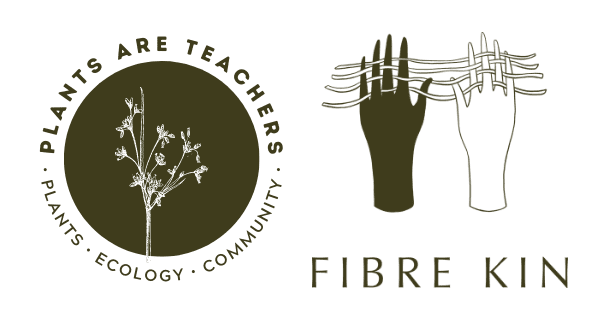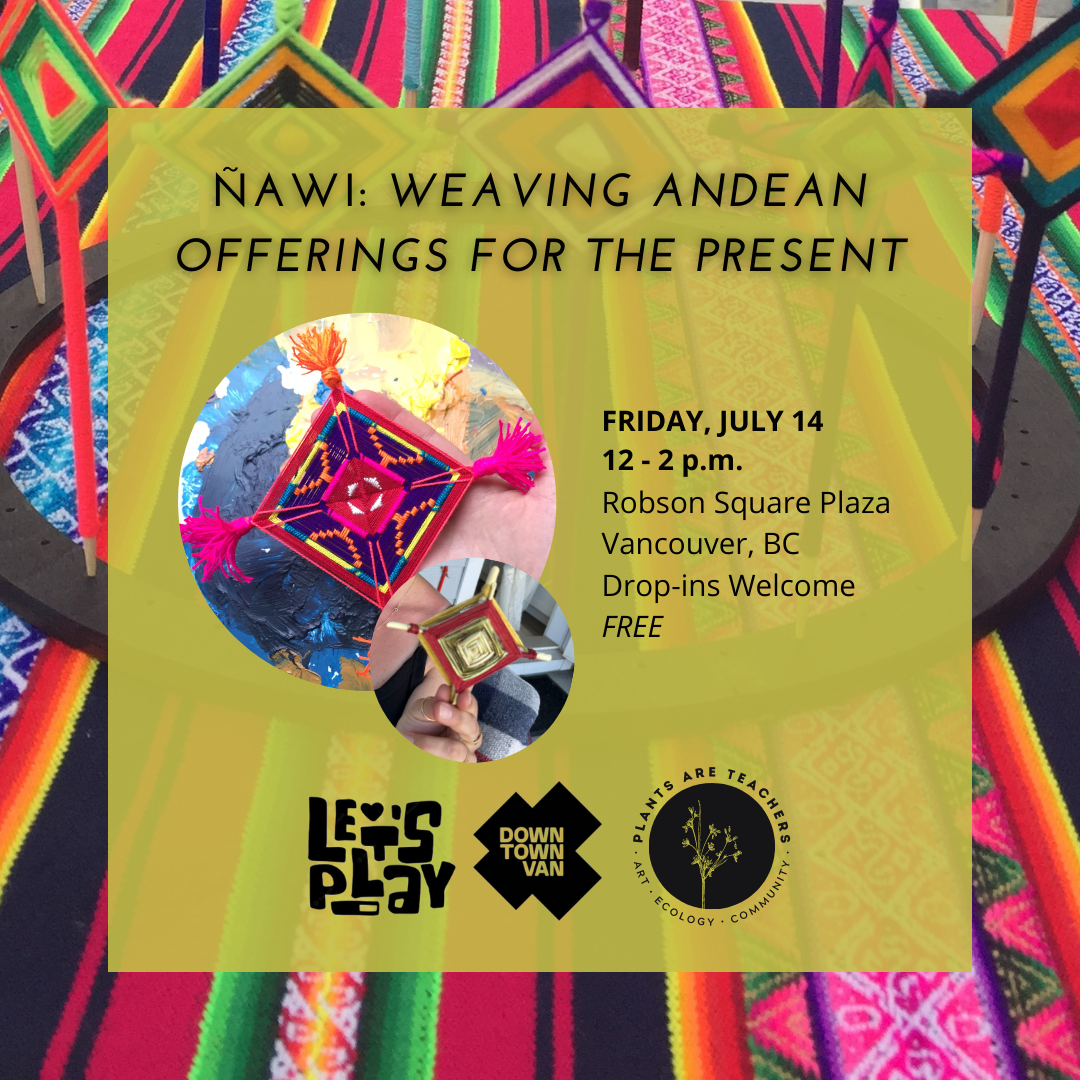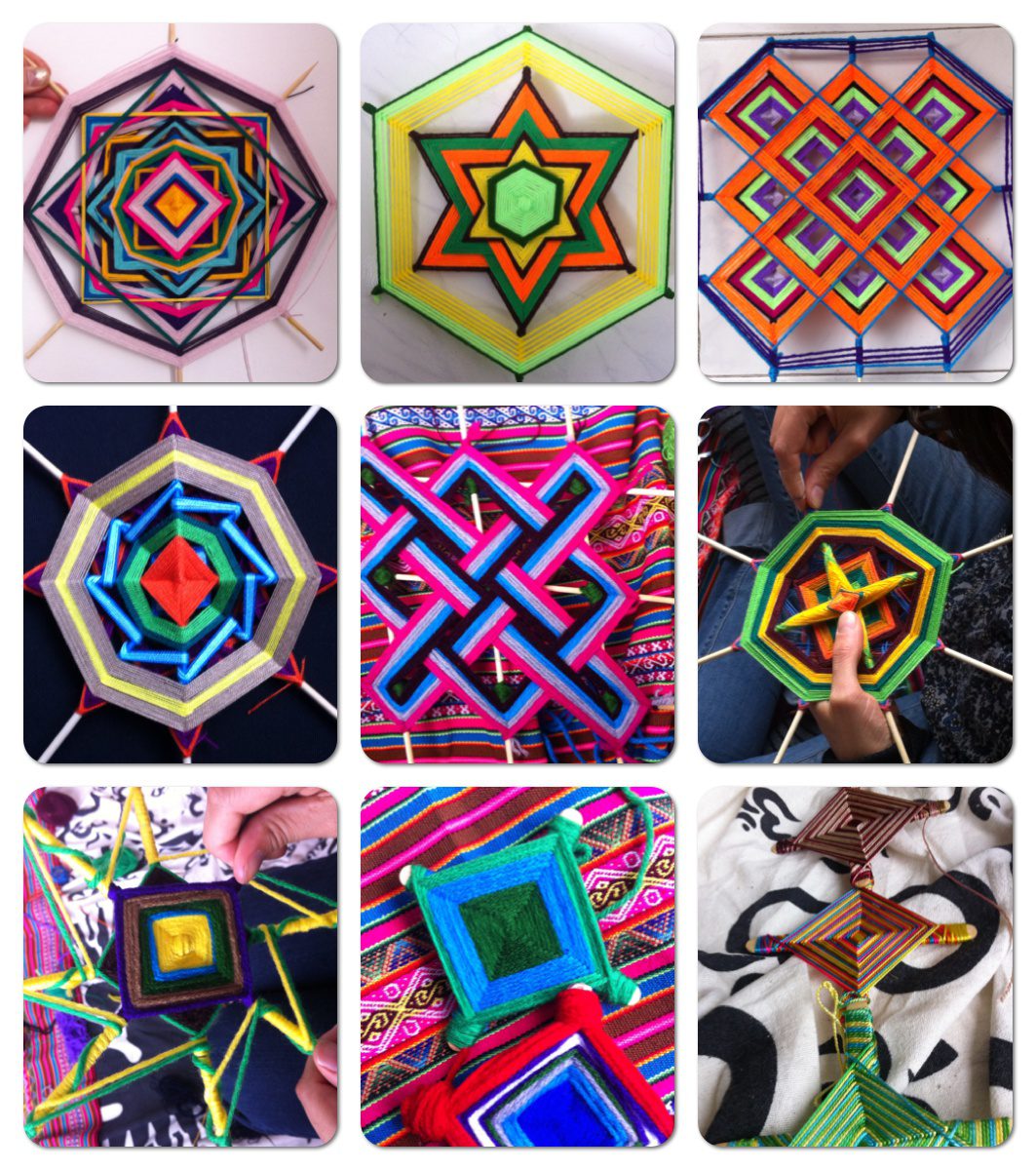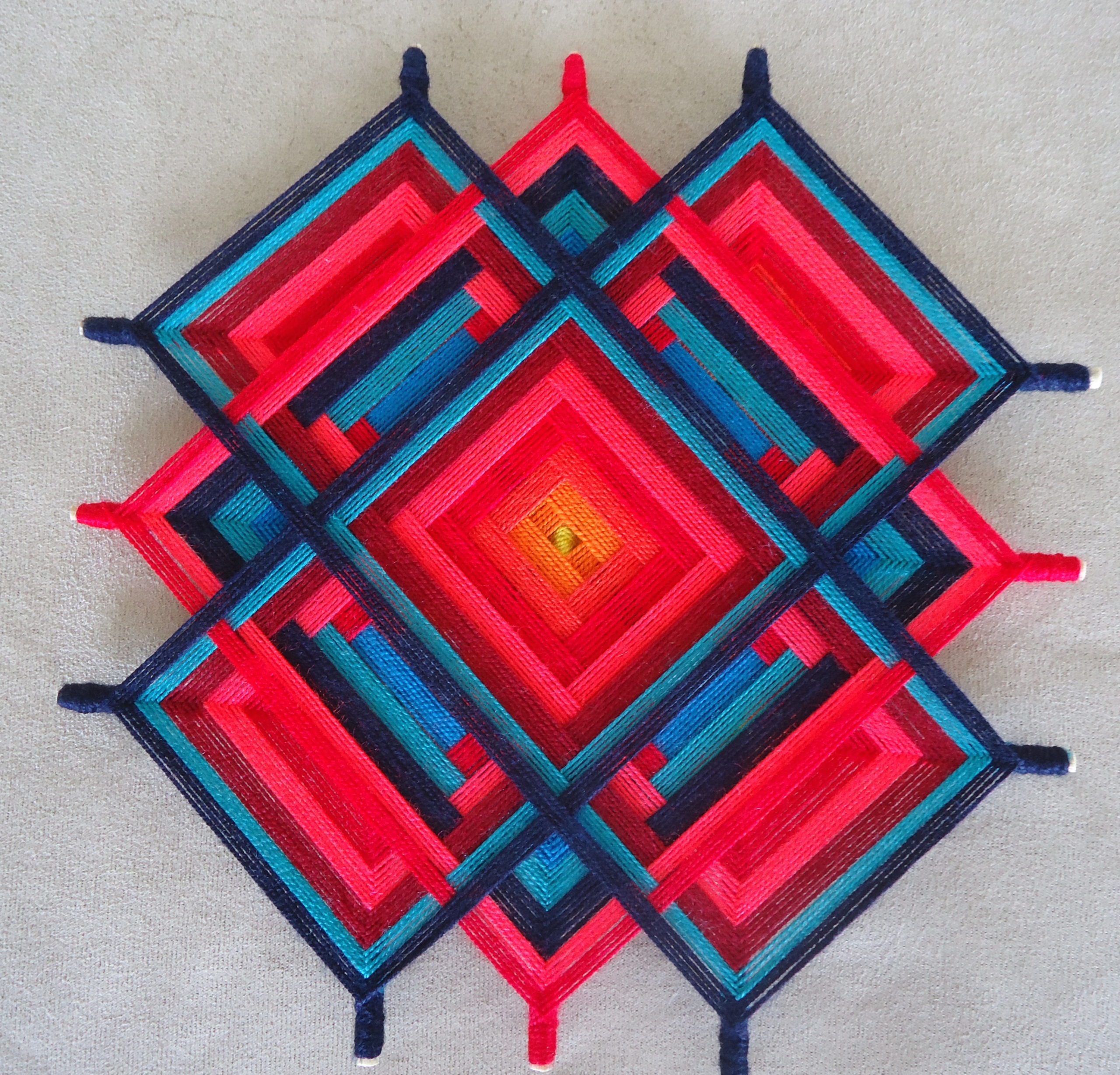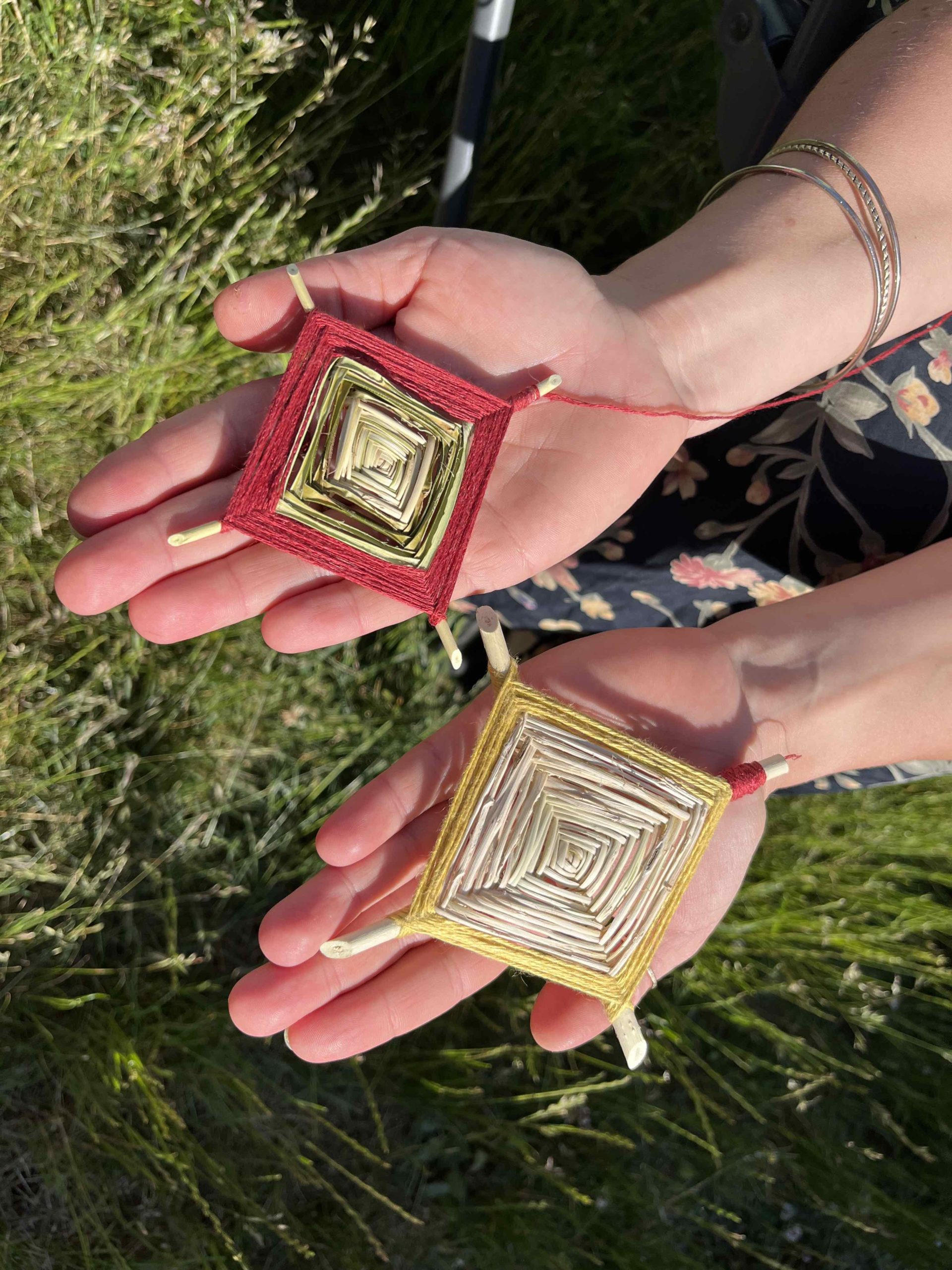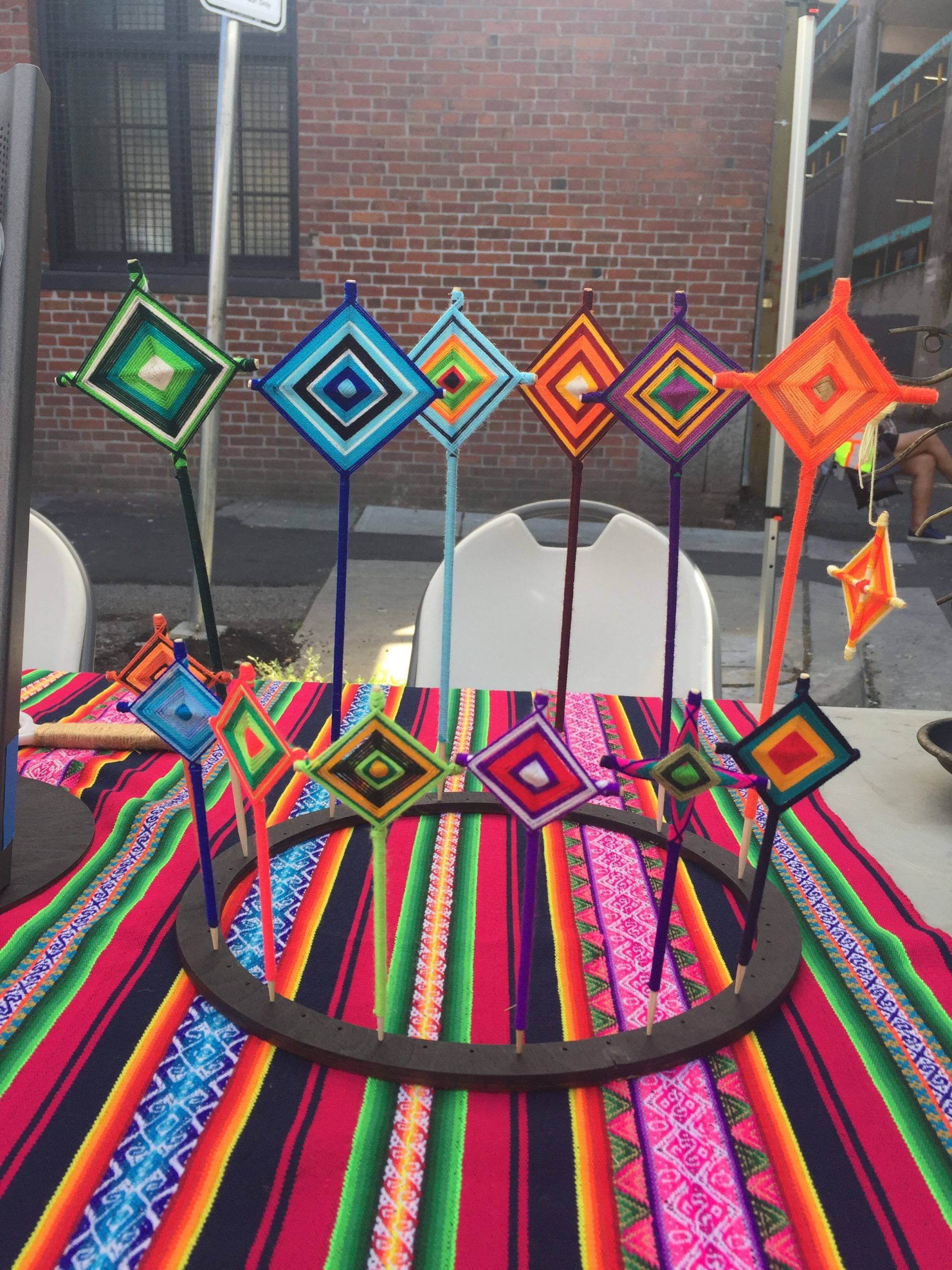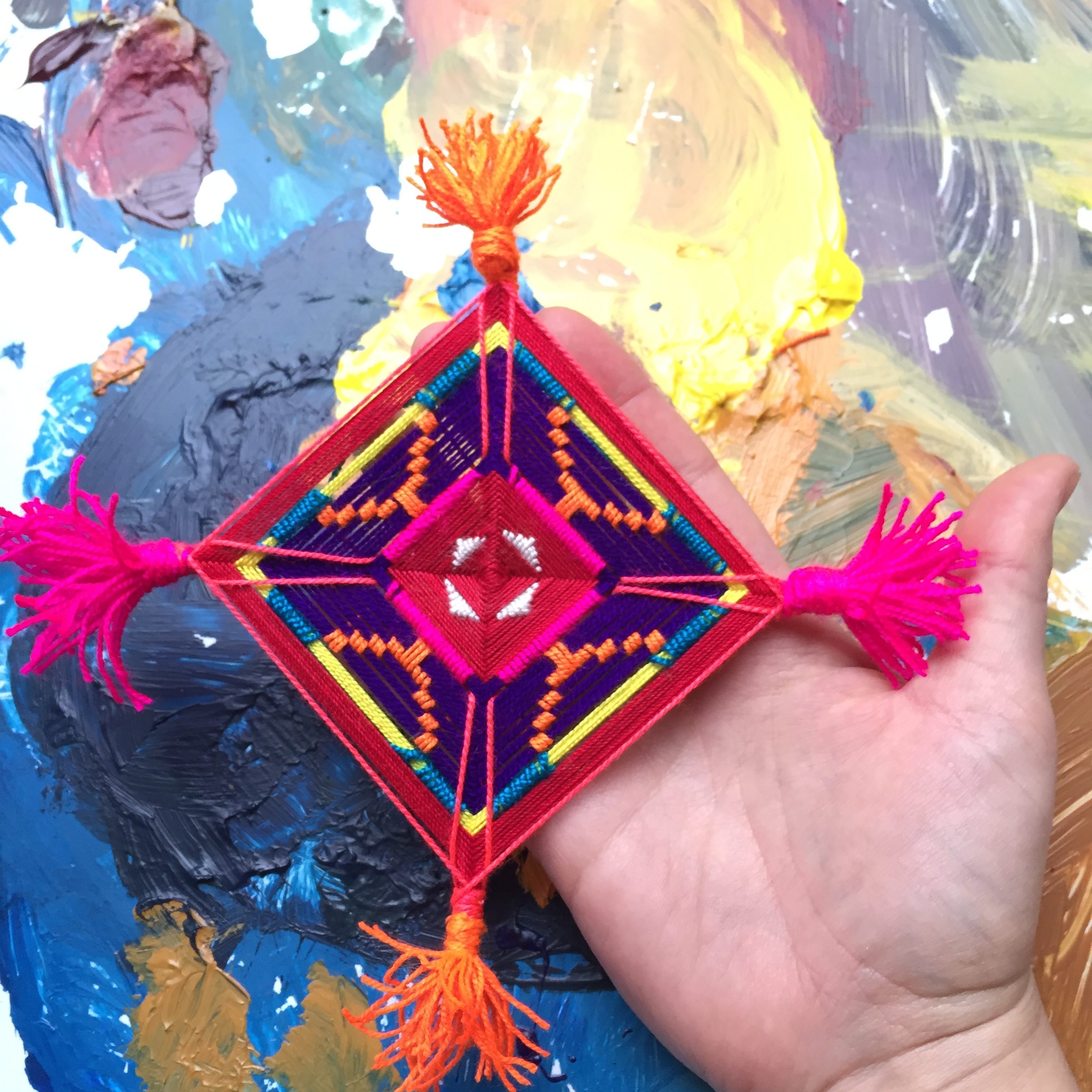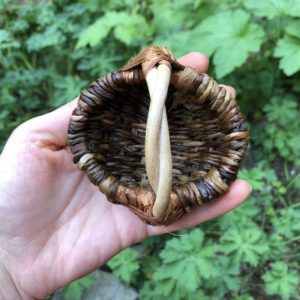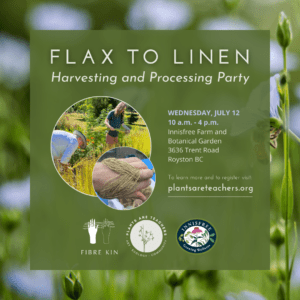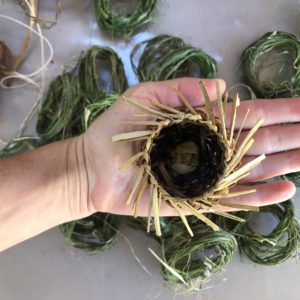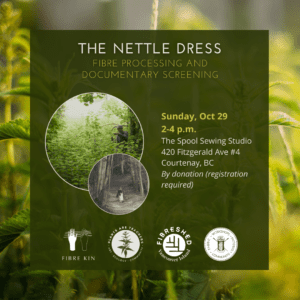- Date: Friday, July 14, 12 – 2 p.m.
- Location: Robson Square Plaza, Vancouver, BC
- FREE (no registration required) – Drop-ins Welcome
Ñawi, or eye motif, is the characteristic rhombus of the fabrics and offerings produced in many parts of the Andean world that has been present in various originary communities across the American continent for millennia. Join community-engaged environmental artist Juliana Bedoya and weaver/doula/educator Maria Anglélica Guerrero to explore these woven sacred geometries that were part of an elaborate system of interregional interaction with populations from the coast, mountains and jungle. The artists will invite people to use locally harvested plant materials and colourful threads to weave small concentric rhomboid designs. Participants will explore their own symbolic meaning inspired by the different ritual uses throughout the Andean lands, as a way to reflect about their own interwoven territories converging in the so-called city of Vancouver.
Ñawi, translated as eye, when combined, is also used to indicate a place where something sprouts, to look or listen, as well as protection. Understanding this concept as a shoot system from where sprouts happen, or as a place of manifestation, participants will reflect on their place in the cyclical continuity of this land and all our human and more than human kin. The spirit of this workshop emerges from the facilitating artists’ longing to Indigenize our presence in the land through stewardship, creative expression and cultural significance.
Funded by Downtown Van’s Public Space Vibrancy Grant, and curated by Laura Barron, PlayDates is a series
of FREE artful happenings, hosted throughout the summer at Robson Square, which allow people of all ages
to explore their own creative expression through fun, engaging interactive workshops in a variety of artistic
mediums including breakdance, bucket drumming, sketching, poetry, natural fibre weaving, singing and
improv comedy.
Facilitating Artists
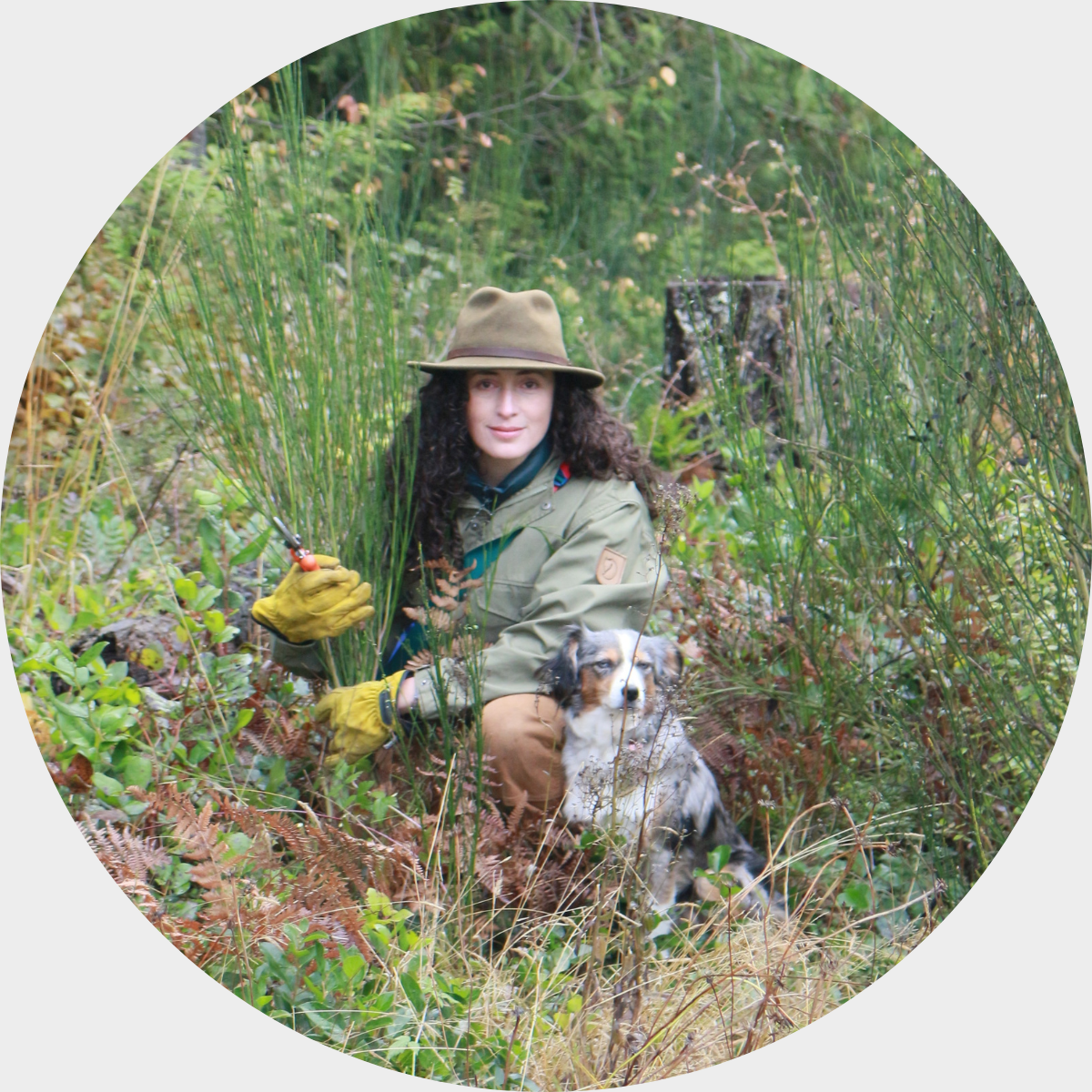
Juliana Bedoya
Juliana Bedoya is a community-engaged environmental artist who supports individuals and community groups to establish their own cultural significance through skill sharing, including all stages of ethically harvesting and processing raw plant materials for art-making and environmental art practice. Respectfully using ancestral skills and traditional knowledge that navigates across cultures, and mainly working with garden trims or the so-called “invasive plants”, this work also aims to support local ecological restoration that fosters native ecology. Through Plants Are Teachers, she invites individuals to seek opportunities to creatively connect with their local landscape while cultivating reciprocal relationships with the land and people. Providing educational opportunities as entry points to interact with plants as teachers and more-than-human beings who carry intrinsic knowledge, Juliana invites people to explore different technologies to interrelate with the territories they inhabit for an ongoing search for relationship with the natural world.
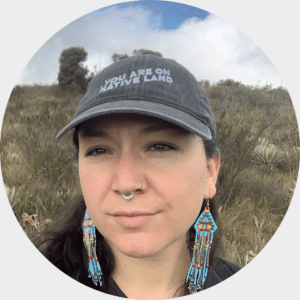
Maria Angélica Guerrero (Keka) is a weaver, birth worker and community educator who is interested in the intersections of disability/illness, collapse, art, community and grief. Keka codevelops educational content about sexual and reproductive healthcare for 2S LGBTQIA+ community members and service providers. By working on deepening her understanding of systems change frameworks, somatics, trauma-informed care and anti-oppression, she is committed to continuing to engage in practices that sustain compassion and work for collective liberation.
